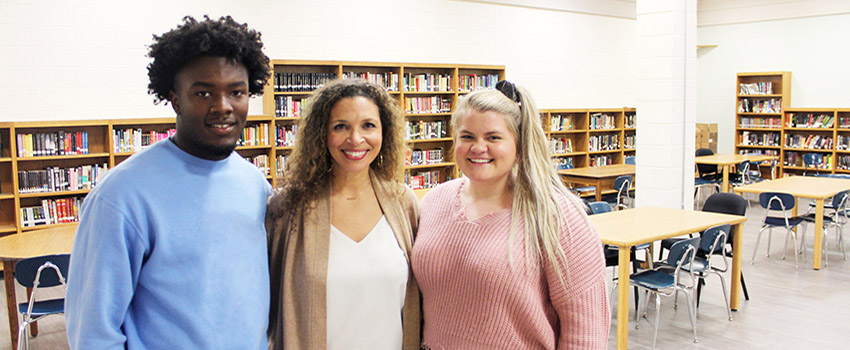School Counseling M.Ed.

The Master of Education in School Counseling prepares culturally competent graduates to work as advocates and leaders in preK-12 school settings through the design and implementation of data-driven comprehensive school counseling programs aligned with the ASCA National Model that benefit and support the academic, career and social-emotional development of all students.
In order to be considered for fall admission, the priority deadline for the School Counseling M.Ed. program is April 15th.
Teaching Experience Not Required
Teaching experience is no longer required for school counseling certification in Alabama. As a program that is nationally accredited by the Council of Accreditation of Counseling and Related Educational Programs (CACREP), students are admitted with bachelor’s degrees in education, psychology, social work and a variety of disciplines as well as a breadth of professional experience.
School Counseling Program Primary Educational Goals
The Master of Education in School Counseling will prepare students to:
- Demonstrate knowledge of the foundations of school counseling to include history, current trends/issues, role, functions, professional identity, leadership/advocacy strategies, ethical responsibility and laws/legislation
- Facilitate P-12 students’ growth and development within the framework of the American School Counselors Association’s (ASCA) Mindsets and Behaviors within the domains of academic, career, and social/emotional development)
- Utilize technology as applied to school counseling
- Demonstrate cultural competence and responsiveness with all students and their families
- Develop, implement and evaluate a comprehensive, data driven school counseling program aligned with the ASCA National Model
- Demonstrate effective and meaningful individual counseling, group work, and whole group instruction with diverse students with diverse needs
- Engage in leadership, advocacy and systemic change efforts on behalf of students.
- Serve as culturally responsive and empowerment-based consultants with students, families, and school personnel concerning the developmental needs of diverse students
- Demonstrate skills related to assessment of students, including administration and interpretation of assessment instruments to students, parents/caregivers, teachers, and administrators
School Counseling Course Schedule
| Year | Fall | Spring | Summer |
|---|---|---|---|
| Year 1 | Principles and Theories of Counseling Foundations of School Counseling Seminar in Ethical & Legal Issues in Counseling Tests, Measurement & Evaluation |
Group Counseling Theory & Practice Counseling Skills & Process Diagnosis & Treatment Planning Multicultural Counseling |
Human Growth & Development (Maymester) Educational Research & Evaluation Advocacy, Collaboration & Consultation Child Counseling |
| Year 2 | Data Driven School Counseling Supervised Practicum in Counseling Career Development, Assessment & Intervention Elective |
Internship in School Counseling Advanced Issues in School Counseling Elective |
| Year | Fall | Spring | Summer |
|---|---|---|---|
| Year 1 | Principles & Theories of Counseling Foundations of School Counseling/ Seminar in Ethical & Legal Issues in Counseling |
Group Counseling Theory & Practice Counseling Skills & Processes Multicultural Counseling |
Human Growth & Development (Maymester) Educational Research & Evaluation Advocacy, Collaboration & Consultation |
| Year 2 | Tests, Measurement & Evaluation Career Development, Assessment & Intervention Supervised Practicum in Counseling |
Internship in School Counseling Diagnosis & Treatment Planning Advanced Issues in School Counseling |
Child Counseling Elective |
| Year 3 | Data Driven School Counseling Internship in School Counseling Elective |
Program Coordinator:
Amy Upton, Ph.D.
amyupton@southalabama.edu
(251) 380-2664




